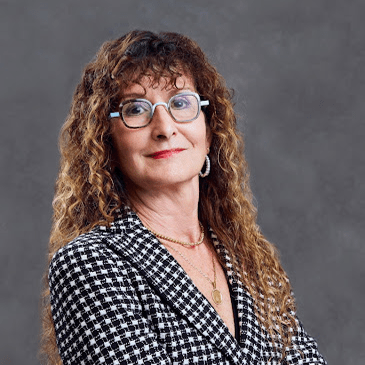
Barbara Rothbaum, PhD
Read Bio →
Barbara Rothbaum, PhD
Dr. Barbara Olasov Rothbaum is Director of the Emory Healthcare Veterans Program, Professor of Psychiatry, and Associate Vice Chair of Clinical Research at Emory University School of Medicine, where she also directs the Trauma and Anxiety Recovery Program. She holds the Paul A. Janssen Chair in Neuropsychopharmacology. A pioneer in the treatment of PTSD, Dr. Rothbaum has been developing and testing innovative therapies for nearly four decades, beginning her research in 1986.
She is widely recognized as the inventor of virtual reality exposure therapy and has played a leading role in advancing evidence-based treatments for trauma and anxiety. For the past decade, she has been conducting translational research on MDMA-assisted therapy for PTSD, helping bridge neuroscience discoveries with clinical application.
Dr. Rothbaum has authored more than 400 scientific papers and chapters, written 11 books, and edited four volumes on PTSD and anxiety. She is a Diplomate in Behavioral Psychology from the American Board of Professional Psychology and a past president of the International Society of Traumatic Stress Studies (ISTSS). Among her many honors, she received the Robert S. Laufer Award for Outstanding Scientific Achievement and the 2021 ISTSS Lifetime Achievement Award. Her recent books for the public, PTSD: What Everyone Needs to Know and Making Meaning of Difficult Experiences, distill decades of expertise into accessible resources for those impacted by trauma.
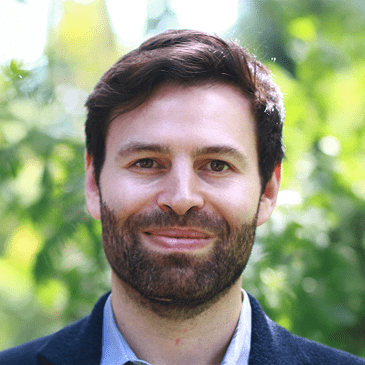
Brandon Weiss, PhD
Read Bio →
Brandon Weiss, PhD
Dr. Brandon Weiss is a licensed clinical psychologist and Assistant Professor at Johns Hopkins University’s Center for Psychedelic and Consciousness Research. For nearly a decade, his work has focused on understanding how psychedelic medicines can improve mental health, with a particular emphasis on military veterans with PTSD.
At Johns Hopkins, he serves as an investigator on two clinical trials: one examining psilocybin combined with trauma-focused psychotherapy for PTSD, and another studying the combined use of MDMA and psilocybin for veteran PTSD. His broader research also explores novel interventions including repetitive Transcranial Magnetic Stimulation (rTMS), ibogaine, and 5-MeO-DMT for Special Operations Forces veterans with PTSD, depression, and traumatic brain injury (TBI).
Dr. Weiss completed clinical training at the San Diego VA/UC San Diego, specializing in Cognitive Processing Therapy and Prolonged Exposure, and later pursued an NIH-funded fellowship in neuropsychopharmacology at Imperial College London.
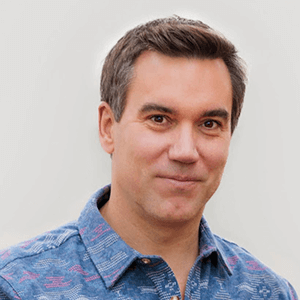
Christopher Nicholas, PhD
Read Bio →
Christopher Nicholas, PhD
Dr. Christopher Nicholas is an Associate Professor at the University of Wisconsin School of Medicine and Public Health (UWSMPH). His research explores the clinical efficacy and therapeutic mechanisms of psychedelics for PTSD, addiction, and depression. He is currently investigating psilocybin-assisted therapy for methamphetamine and opioid use disorders, ketamine-assisted therapy for adolescent PTSD, and how neuroplasticity and memory salience relate to psychedelic therapy. Dr. Nicholas served as a site PI for Phase 3 trials of MDMA-assisted therapy for PTSD. He also directs the UW Pain Psychology Recovery Service and teaches in UW’s Master’s Program in Psychoactive Pharmaceutical Investigation. He earned his PhD in clinical psychology and neuroscience from the University of Tennessee and completed a postdoctoral fellowship in neuroimaging at the William S. Middleton VA.
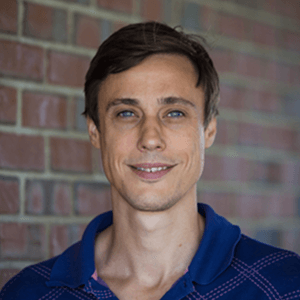
Franklin King, M.D.
Read Bio →
Franklin King, M.D.
Dr. Franklin King is a Psychiatrist and Director of Training and Education at the Center for Neuroscience of Psychedelics at Massachusetts General Hospital (MGH), and an Instructor in Psychiatry at Harvard Medical School.
He completed residency in psychiatry at MGH/McLean followed by a fellowship in Consult-Liaison (CL) Psychiatry at MGH and a research fellowship at the MGH Cardiac Psychiatry Research Program. His areas of research include optimization of therapy paradigms within psychedelic research as well as the use of psychedelic-assisted therapies in disorders at the mind-body interface. Dr. King is the Principal Investigator of a pilot study exploring the feasibility of psilocybin-assisted therapy for irritable bowel syndrome (IBS), Co-Principal Investigator on a collaborative project with Fireside Project—a national psychedelic harm reduction organization—and the study psychiatrist for a neuroimaging investigation examining the neural mechanisms underlying psychedelic experiences.
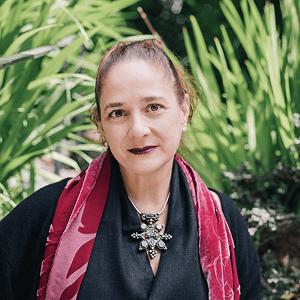
Jennifer Mitchell, PhD
Read Bio →
Jennifer Mitchell, PhD
Dr. Jennifer Mitchell is a Professor in the UCSF Departments of Neurology and Psychiatry & Behavioral Sciences, and Associate Chief of Staff for Research at the San Francisco VA. She holds an affiliate appointment at UC Berkeley’s Center for the Science of Psychedelics and serves as Chair of the California DOJ’s Research Advisory Panel. Her research focuses on identifying and developing novel therapeutics for drug and alcohol abuse, PTSD, stress, anxiety, and depression and understanding the neural mechanisms responsible for these disorders. She has extensive experience with human and animal pharmacology, hypothesis-driven neuroscience, and clinical trials. For a number of years, her work has centered around the development of psychedelic medicines for a broad range of mental health conditions, including depression, anxiety, and PTSD.
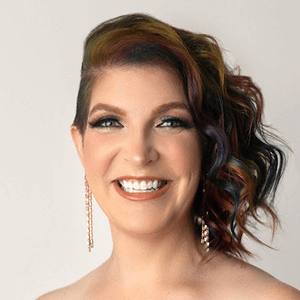
Lynnette Astrid Averill, PhD
Read Bio →
Lynnette Astrid Averill, PhD
Dr. Lynnette Averill is a clinical psychologist and neuroscientist whose work is deeply informed by personal experience—her father, a U.S. Marine, died by suicide after years of ineffective treatment. She now leads research on rapid-acting and psychedelic-based interventions for PTSD, suicidality, and trauma-related conditions.
Dr. Averill is an Associate Professor at Baylor College of Medicine, a Clinical Research Psychologist at the Michael E. DeBakey VA, Director of Research for The Menninger Clinic, and maintains faculty appointments at Yale School of Medicine. She co-directs the Ethical Legal Implications of Psychedelics in Society (ELIPSIS) Program on the ethics of psychedelics and directs the Emerge Research Program. She is also Co-Founder and Chief Science Officer of Reason for Hope and a founding member of the Veterans Mental Health Leadership Coalition.
She leads the first state-funded clinical trial of psilocybin-assisted therapy for veterans with PTSD (TX HB1802) and has contributed to multiple state and federal policy efforts. Her research includes ketamine, ibogaine, and 5-MeO-DMT, with a focus on treatment mechanisms and outcomes in Special Operations Forces veterans. Her work has been recognized by the Fulbright Program, VA, AFSP, BBRF, ACNP, and others.
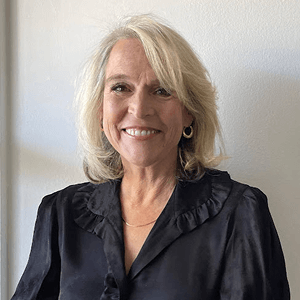
Rachel Yehuda, PhD
Read Bio →
Rachel Yehuda, PhD
Dr. Rachel Yehuda is an Endowed Professor of Psychiatry and Neuroscience of Trauma. She is also Director of Mental Health at the James J. Peters Veterans Affairs Medical Center. She is a recognized leader in the field of traumatic stress studies, PTSD, and intergenerational trauma. In 2020, Dr. Yehuda established and now directs The Parsons Research Center for Psychedelic Healing.
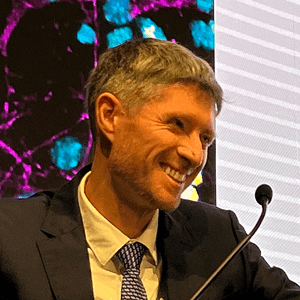
Robin Carhart-Harris, PhD
Read Bio →
Robin Carhart-Harris, PhD
Dr. Robin Carhart-Harris became the Ralph Metzner Distinguished Professor of Neurology and Psychiatry at the University of California, San Francisco (UCSF) in 2021 and founded the Carhart-Harris Lab in 2023. He moved to Imperial College London in 2008 after earning a PhD in Psychopharmacology from the University of Bristol. Robin and his colleagues have completed multimodal human functional neuroimaging studies with LSD, psilocybin, MDMA, and DMT, as well as clinical trials of psilocybin therapy for various disorders—including three in depression, plus trials in anorexia and fibromyalgia. He is currently ranked #2 globally in ‘Psychopharmacology’ and #4 in ‘Brain and Cognitive Sciences’ (ScholarGPS). Robin has published in The New England Journal of Medicine (x4), Nature, Nature Medicine, Nature Neuroscience, Cell, Lancet Psychiatry, Science Advances, JAMA Psychiatry, and The American Journal of Psychiatry. He founded the Centre for Psychedelic Research at Imperial in 2019—the first such center in the world. Robin has spoken at the World Economic Forum, was listed in TIME magazine’s “100 Next” in 2021, and signed a book deal in 2023 with Ebury Publishing and Scribner, with a book set to release in 2025. His current research at UCSF focuses on the mechanisms of action of psilocybin and psilocybin-assisted therapy.

